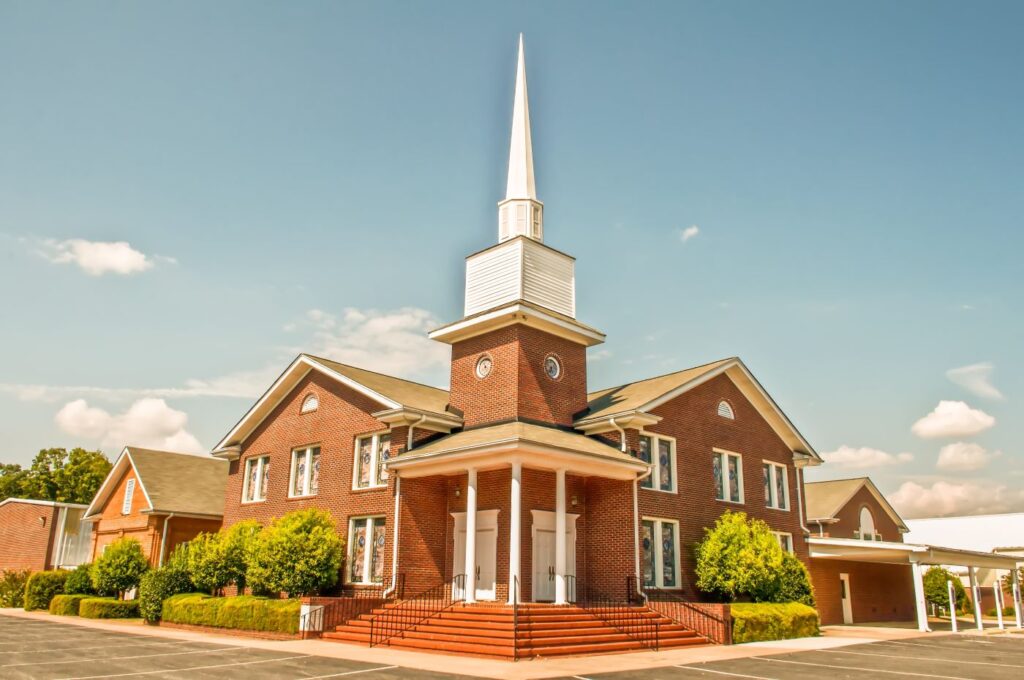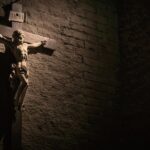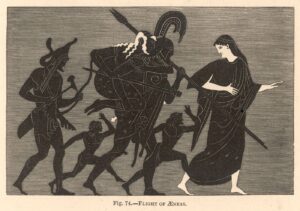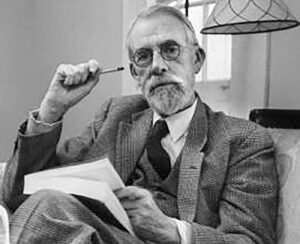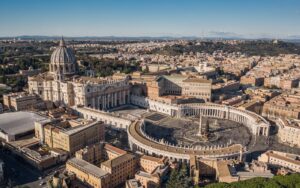Liberalism has not been wanting for obituaries in recent years. Academics such as Patrick Deneen have argued at length that the American experiment has failed and it is time for a new regime. Among Roman Catholics, the most extreme angst about political modernity finds expression as “integralism,” an ideology holding that the state ought to be subordinate to the church. Among evangelicals, these same anxieties sometimes manifest as the less sophisticated “Christian nationalism,” the quasi-theocratic position that Protestants need to “take back” America and return it to some earlier, more pristine set of social arrangements.
But in his new book, Religion & Republic, Hillsdale College history professor Miles Smith IV takes a different tack from sounding liberalism’s death knell. Instead, he persuasively argues that the roots of American order go far deeper than liberalism’s critics allow, and he shows how the Founders saw Christian institutions playing a vital role in the life of the early republic. The generation that built this country largely existed in a distinctively Protestant stream of the Western tradition, which is sadly neglected today. By retelling this almost forgotten story, Smith unearths tools and principles that Christian Americans can deploy as we pursue cultural renewal today.
The book begins by distinguishing Protestant tradition from “evangelicalism.” In Smith’s analysis, religion in the early republic had much more to do with historic Anglican, Lutheran, and Calvinist expressions of the faith than the more charismatic or biblicist approaches common in nondenominational churches and evangelical seminaries today. As Publius put it in Federalist No. 2, Americans were
one united people; a people descended from the same ancestors, speaking the same language, professing the same religion, attached to the same principles of government, very similar in their manners and customs.
Start your day with Public Discourse
Sign up and get our daily essays sent straight to your inbox.
It would be an exaggeration to say that every American was a Christian, but Christian religion nonetheless formed the moral core of the republic.
Beginning from this premise, Smith outlines an interpretation of the First Amendment altogether at odds with the strict separationism many believe it enshrines. After decades of liberal jurisprudence, it may be difficult to see the Constitution as anything but an instrument of secularism. Smith, however, comes to a different conclusion after a closer look at the way Protestants actually governed at the time of the American founding. They largely believed that government was, in fact, responsible for legislating morality—and that religion was supposed to guide it in this “essential duty.” “Put simply,” he concludes, “Early Republic legislators conceived of the First Amendment very differently than modern Americans do and did not perceive the Constitution as imposing federal will on preexisting establishments.”
It is for this reason, Smith argues, that the American Revolution’s commitment to personal liberty did not result in the retreat of Christianity from the public square. Other secularizing movements born from Enlightenment ideology, such as the French Revolution or English liberalism, may have aimed at such an outcome—but in this, as in so much else, America was exceptional. “Disestablishment commitments regarding church and state did not revolutionize family or other institutions that upheld life in the Early American Republic,” Smith contends, “nor did the United States enter the family of nations perceived by commentators as a sanctuary for secularism, social democracy, or social egalitarianism.” It would be more accurate to say that Christianity undergirded the early republic’s public square. Religion played a fundamentally conservative role in the American founding, to put it another way, by providing both a shared sense of a transcendent moral order and links back to an enduring Western tradition.
It would be an exaggeration to say that every American was a Christian, but Christian religion nonetheless formed the moral core of the republic.
It is nonetheless true that certain factions sought a more radical reassessment of religion’s role in American life. Thomas Jefferson and other deists, for instance, partnered with dissenting Christians to deconstruct formal church establishments that dated back to the colonial past. As Smith notes, Jefferson “was programmatically committed to replacing historic Protestantism in America.” While he had some successes—Virginia disestablished the Anglican church in early 1786, and even Puritan Massachusetts had embraced disestablishment by 1833—most Americans never went as far as their third president when it came to separating church and politics.
Mainstream opinion in the early republic firmly held that virtue was necessary for free government, then, and that religion played an important role in making citizens virtuous. The founding’s conceptions of natural rights, limited government, and even federalism were traditions largely inherited from older, Protestant sources. So leading statesmen, such as George Washington and John Adams, believed that the Constitution could only succeed if religion and morality provided the groundwork for its operation.
That does not mean, however, that the founders viewed theocracy as a useful or legitimate tool for self-government. Religious sentiment was not something that could be forced on a people, and sectarian fighting between various denominations would not lead to the kind of civic virtue they prized so highly. Many of the founders even possessed mildly anti-clerical views—they did not want priests or pastors involved in the intimate details of their lives. Thus, they attained a sort of settlement: government could certainly encourage religion, and religion could support the republican experiment, but a healthy tension would always exist.
Sabbath laws are one illustration Smith relies on to detail how the early republic navigated that tension. Many denominations held that any kind of work or commerce conducted on the sabbath was sinful, and especially fervent revivalist Christians sought to have some recognition of this enshrined in law. While the federal government largely avoided legislating on the matter, many state and local governments implemented sabbath prohibitions that persisted into the nineteenth century or beyond. Smith treats these laws—along with other examples from the history of court procedures, Indian policy, or even foreign relations—as case studies in the complexity of what he calls “public Christianity.” While the Founders committed America to a generous religious liberty, Christianity nonetheless exerted immense influence on both the mores and the politics of the early republic.
This tension inherent in early republic religious liberty is perhaps most clearly present in the Northwest Ordinance, one of the four “organic acts” of the United States. Originally passed by the Confederation Congress in 1786, and later reaffirmed by the federal Congress under the new U.S. Constitution, this law organized the first incorporated territory in the Great Lakes region. In many respects, the kind of society it was designed to create reflected the founders’ “ideal republic”—the Northwest (now what we consider the Midwest) represented their hopes and dreams for the nation’s future.
The third article of the Ordinance begins with a statement of principle: “Religion, morality, and knowledge, being necessary to good government and the happiness of mankind, schools and the means of education shall forever be encouraged.” While that by no means is an establishment of any particular faith, Smith interprets this act of Congress as “institutionaliz[ing] religion within the political framework” on the frontier. The federal government—even Jefferson himself—realized that churches were essential to the civilizational mission of settling the West. This was especially true when it came to establishing educational institutions.
In Smith’s telling, early American education was anything but a secular affair. Stretching back into colonial history, churches had always overseen schooling of both children and those who pursued higher learning; great universities such as Harvard and Yale began as colleges for training clergy. The American Revolution did not throw off the influence of these institutions. If anything, Smith explains how religion’s role in education increased after independence was won.
Even at public colleges and universities in the early republic, Christian religion was considered essentially normative. According to Smith, Protestant divines such as the great Presbyterian Charles Hodge “saw public education not as the exclusive province of the state, but as a cooperative effort between the state, the church, and parents.” Theology played a central role in the liberal education valued by Americans, and religion was the “beating heart” of a civic education required for virtuous and moral citizenship. Even if their institutions were officially nonsectarian, most educators simply could not conceive of making “neutrality” their chief aim.
To pithily describe all these arrangements, Smith coins the term “Christian institutionalism.” The founders were not committed to either an amoral liberal or a theocratic “Christian nationalism.” Instead, Smith shows that “they wanted to maintain Christian precepts in their nation’s various social and political institutions without sacralizing those principles or subordinating the American republic to a church.” Ultimately, both the reigning liberalism of today and its extreme critics are incompatible with the republican principles that defined the founding.
Smith’s “Christian institutionalism” is more than a historical hermeneutic, though—it can also serve as a useful shorthand for conservatives’ mission today. In the introduction, our author positions himself against both the “revivalist folk Christianity” fueling the new right-wing nationalism and the “en masse progressive deconstruction” inspiring the emerging evangelical Left. While Smith has no illusions about winding back the clock and returning to the precise arrangements of the early republic, he holds that the founders’ principles are an encouragement to Christians to “engage their neighbors by being healthy and responsible stewards of healthy and responsible Christian institutions at the local, municipal, and state levels, and in the arts and sciences as well as in politics.”
That approach may seem modest when contrasted with more ambitious calls for “regime change” or “social justice,” but Smith maintains “this is what America’s character as a Christian nation has always meant.” In this sense, Religion & Republic is an excellent reminder that conservatives should never prioritize an idealized individual or nation. Rather, we must work to preserve those institutions that point us to better lives.
Image by digidreamgrafix and licensed via Adobe Stock.

